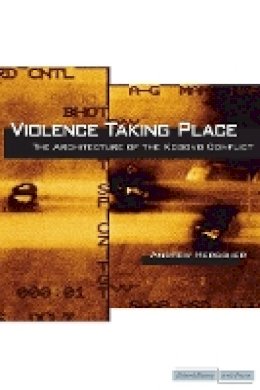
Stock image for illustration purposes only - book cover, edition or condition may vary.
Violence Taking Place: The Architecture of the Kosovo Conflict
Andrew Herscher
€ 111.89
FREE Delivery in Ireland
Description for Violence Taking Place: The Architecture of the Kosovo Conflict
Hardback. The first history ever of violence against architecture as political violence, this book examines the case of the former Yugoslavia and the ways in which architecture is a site where power, agency, and ethnicity are constituted. Series: Cultural Memory in the Present. Num Pages: 224 pages, 39 illustrations. BIC Classification: 1DVWY; JFFE; JHM. Category: (UP) Postgraduate, Research & Scholarly; (UU) Undergraduate. Dimension: 5817 x 3887 x 23. Weight in Grams: 454.
Read more
While the construction of architecture has a place in architectural discourse, its destruction, generally seen as incompatible with the very idea of "culture," has been neglected in theoretical and historical discussion. Responding to this neglect, Herscher examines the case of the former Yugoslavia and in particular, Kosovo, where targeting architecture has been a prominent dimension of political violence. Rather than...
Product Details
Format
Hardback
Publication date
2010
Publisher
Stanford University Press United States
Number of pages
224
Condition
New
Series
Cultural Memory in the Present
Number of Pages
224
Place of Publication
Palo Alto, United States
ISBN
9780804769358
SKU
V9780804769358
Shipping Time
Usually ships in 15 to 20 working days
Ref
99-15
About Andrew Herscher
Andrew Herscher is Assistant Professor of Architecture at the University of Michigan. He investigated wartime destruction for the International Criminal Tribunal for the former Yugoslavia, was co-director of the Department of Culture of the United Nations Mission in Kosovo, and founded the Kosovo Cultural Heritage Project.
Reviews for Violence Taking Place: The Architecture of the Kosovo Conflict
"Overall, the book Violence Taking Place: The Architecture of the Kosvo Conflict is a thoughtful and detailed study of the complex relationships between architecture and violence. It provides an insightful view of the specifics of the Kosvo conflict and the broader context needed in our attempts to understand the war in former Yugoslavia."—Dijana Alic, International Journal of Islamic Architecture "Andrew...
Read more